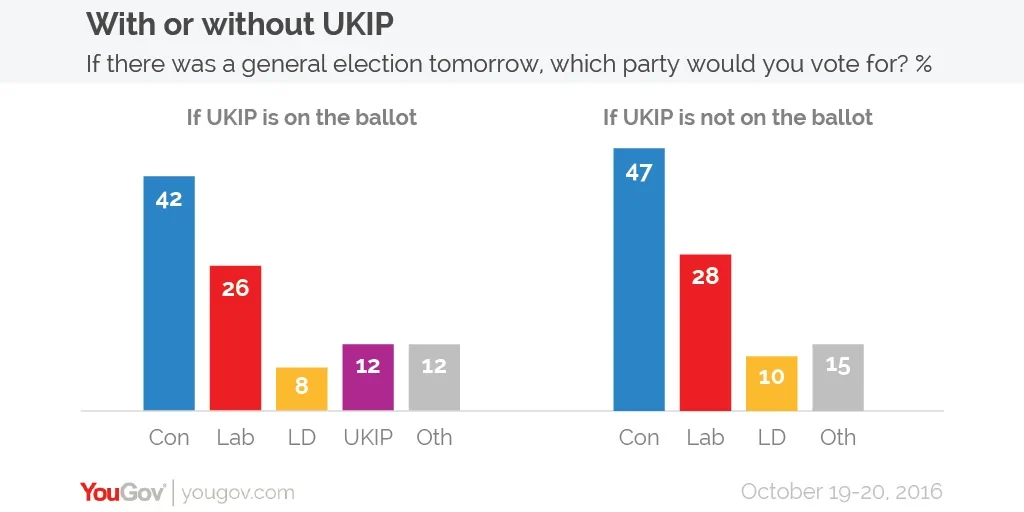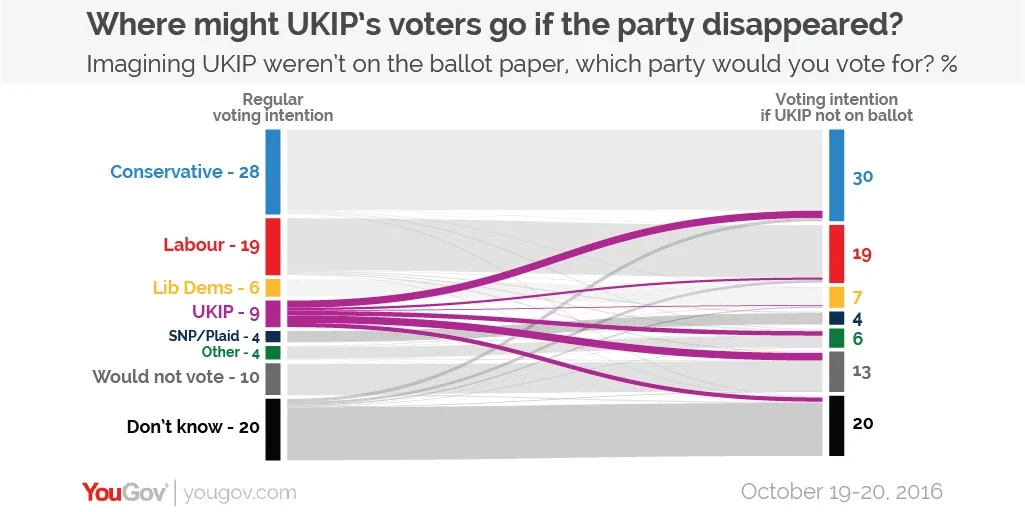Conservatives could get a five point jump if UKIP don’t field candidates
In the past few months UKIP has seen two leaders resign (one after just 18 days), falling poll ratings, an “altercation” between two MEPs, one of those MEPs quitting and major donors withdrawing their support. It has led some to begin questioning whether the party can survive in a post-Farage, post-Brexit era.
To test the possible effects the collapse of UKIP might have, YouGov ran a unique experiment for Election Data looking at the effect removing UKIP from the ballot paper has on voting intention.
The main beneficiary of a UKIP demise would be the Conservatives, who see their poll numbers increase five percentage points to 47%, whilst Labour and the Lib Dems would pick up an extra two points each. This would increase the current Tory lead to 19% and – if replicated at a general election – would be their biggest share of the vote since 1959.

This is perhaps not surprising: Theresa May has been aligning herself with UKIP in many policies areas, including immigration and grammar schools. It also comes at a time when she is perceived as a more viable Prime Minister than Jeremy Corbyn.
The increase in the Conservative vote share has two components. There are straight switchers, those who would move directly between the two parties, who make up approximately a quarter of all current UKIP voters. However 28% of UKIP supporters tell us they “would not vote” if UKIP weren’t on the ballot. Because they are then dropping out of the headline voting number, this also has the effect of pushing up the Tory lead.
Assuming a uniform swing across the country on current boundaries, this result would likely give the Conservatives a majority of a little over 100 in the House of Commons. However the data shows the party are disproportionately picking up votes from UKIP in the South of England, where there are fewer seats for them to win, which could decrease the potential size of their total tally.
We also don’t know what other effects losing UKIP could have on a future election. It may be that the whole narrative of British politics shifts with unexpected consequences. It could be that a new party appears to pick up these same voters. But in the current political climate, the weaker UKIP are the stronger the Tories will be.
Photo: PA








